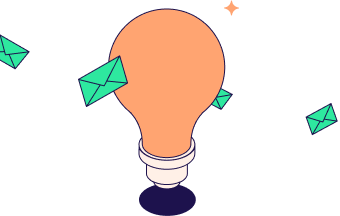Influencer marketing has become a vital component of modern marketing strategies, allowing brands to connect with targeted audiences through trusted voices. With the advent of Artificial Intelligence (AI), influencer marketing is undergoing a significant transformation, enabling marketers to make data-driven decisions, optimize campaigns, and achieve better results. This comprehensive guide will explore how AI is reshaping influencer marketing and provide you with practical strategies to integrate AI into your influencer campaigns.
Understanding AI in Influencer Marketing
AI in influencer marketing involves leveraging machine learning, natural language processing, computer vision, and data analytics to automate, optimize, and enhance various aspects of influencer campaigns. By analyzing vast amounts of data from social media platforms, AI can help marketers identify the right influencers, create personalized content, predict campaign performance, and measure ROI more effectively.
The benefits of AI in influencer marketing are significant:
- Data-driven influencer selection and matching
- Improved campaign planning and optimization
- Enhanced content creation and personalization
- Accurate campaign performance prediction and measurement
- Increased efficiency and scalability of influencer programs
AI Use Cases in Influencer Marketing
- Influencer Identification and Selection AI-powered tools can analyze social media data to identify influencers who are most relevant to a brand’s target audience, industry, and campaign objectives. By evaluating factors such as reach, engagement, authenticity, and audience demographics, AI can help marketers find the right influencers for their campaigns, ensuring better alignment and results.
- Content Creation and Personalization AI can assist in creating personalized content for influencer campaigns by analyzing audience preferences, engagement patterns, and trending topics. Natural Language Processing (NLP) and computer vision technologies can help generate optimized captions, hashtags, and visual content, tailored to each influencer’s unique style and audience.
- Campaign Planning and Optimization AI-powered predictive analytics can help marketers plan and optimize influencer campaigns by forecasting performance metrics such as reach, engagement, and conversions. By analyzing historical data and real-time insights, AI can recommend the optimal mix of influencers, content formats, and posting schedules to maximize campaign effectiveness.
- Performance Measurement and ROI Attribution AI can help marketers measure the true impact of their influencer campaigns by analyzing complex data sets across multiple platforms and touchpoints. By tracking key metrics such as engagement, conversions, and sales attribution, AI-powered tools can provide a more accurate picture of campaign ROI and help marketers optimize their investments.
- Fraud Detection and Brand Safety AI can help identify and prevent influencer fraud, such as fake followers, engagement pods, or inauthentic content. By analyzing patterns and anomalies in influencer data, AI-powered tools can flag potential risks and ensure brand safety in influencer partnerships.
Top AI Tools for Influencer Marketing
- Traackr: An AI-powered influencer marketing platform that provides influencer discovery, audience insights, and campaign management tools.
- Upfluence: An AI-driven influencer marketing software that helps brands find relevant influencers, manage campaigns, and measure performance.
- Klear: An AI-powered influencer marketing platform that offers influencer search, analytics, and campaign optimization features.
- Mavrck: An AI-driven influencer marketing platform that enables brands to identify micro-influencers, create authentic content, and measure ROI.
- Hypeauditor: An AI-powered tool that helps marketers analyze influencer audiences, detect fraud, and ensure brand safety.
Implementing AI in Your Influencer Marketing Strategy
To successfully integrate AI into your influencer marketing strategy, follow these steps:
- Define clear objectives and KPIs for your AI-powered influencer campaigns.
- Invest in AI tools and platforms that align with your specific influencer marketing needs and goals.
- Ensure your team has the necessary skills and training to work with AI technologies effectively.
- Establish data-driven processes for influencer selection, content creation, and campaign optimization.
- Continuously monitor and evaluate the impact of AI on your influencer campaigns, making data-informed adjustments as needed.
The Future of AI in Influencer Marketing
As AI continues to advance, its impact on influencer marketing will only grow. Some emerging trends and innovations to watch include:
- Predictive influencer matching based on audience psychographics and behavioral data.
- AI-generated influencer content, such as virtual influencers and personalized videos.
- Real-time campaign optimization using AI-powered A/B testing and dynamic content adjustment.
- AI-driven influencer relationship management and sentiment analysis.
Case Studies and Success Stories
Several brands have already achieved impressive results by leveraging AI in their influencer marketing efforts:
- Estée Lauder used AI-powered influencer discovery and audience insights to identify the most relevant influencers for their campaigns, resulting in a 200% increase in engagement.
- Decathlon leveraged AI to analyze influencer content and engagement data, optimizing their campaign strategy and achieving a 45% increase in click-through rates.
- Coca-Cola utilized AI-powered influencer matching and content optimization to create personalized campaigns, resulting in a 3x increase in engagement and a 2x increase in purchase intent.
These success stories demonstrate the transformative potential of AI in influencer marketing and underscore the importance of embracing AI to stay competitive in a rapidly evolving digital landscape.
Conclusion
AI is revolutionizing influencer marketing, providing marketers with powerful tools and insights to create more effective, personalized, and measurable campaigns. By understanding the capabilities of AI, investing in the right technologies, and integrating them into your influencer marketing strategy, you can unlock new opportunities to connect with your target audience, drive engagement, and achieve better results.
However, it’s essential to remember that AI is not a substitute for human creativity, authenticity, and relationship-building skills. The most successful influencer marketers will be those who can effectively combine AI-powered insights with human intuition, empathy, and strategic vision.
To further explore the world of AI in influencer marketing, check out these additional resources:
- “Influencer Marketing in the Age of AI” by Adweek
- “The Ultimate Guide to Influencer Marketing” by HubSpot
- “How AI is Changing Influencer Marketing” by Forbes
Embrace the power of AI and elevate your influencer marketing strategy to new heights.





